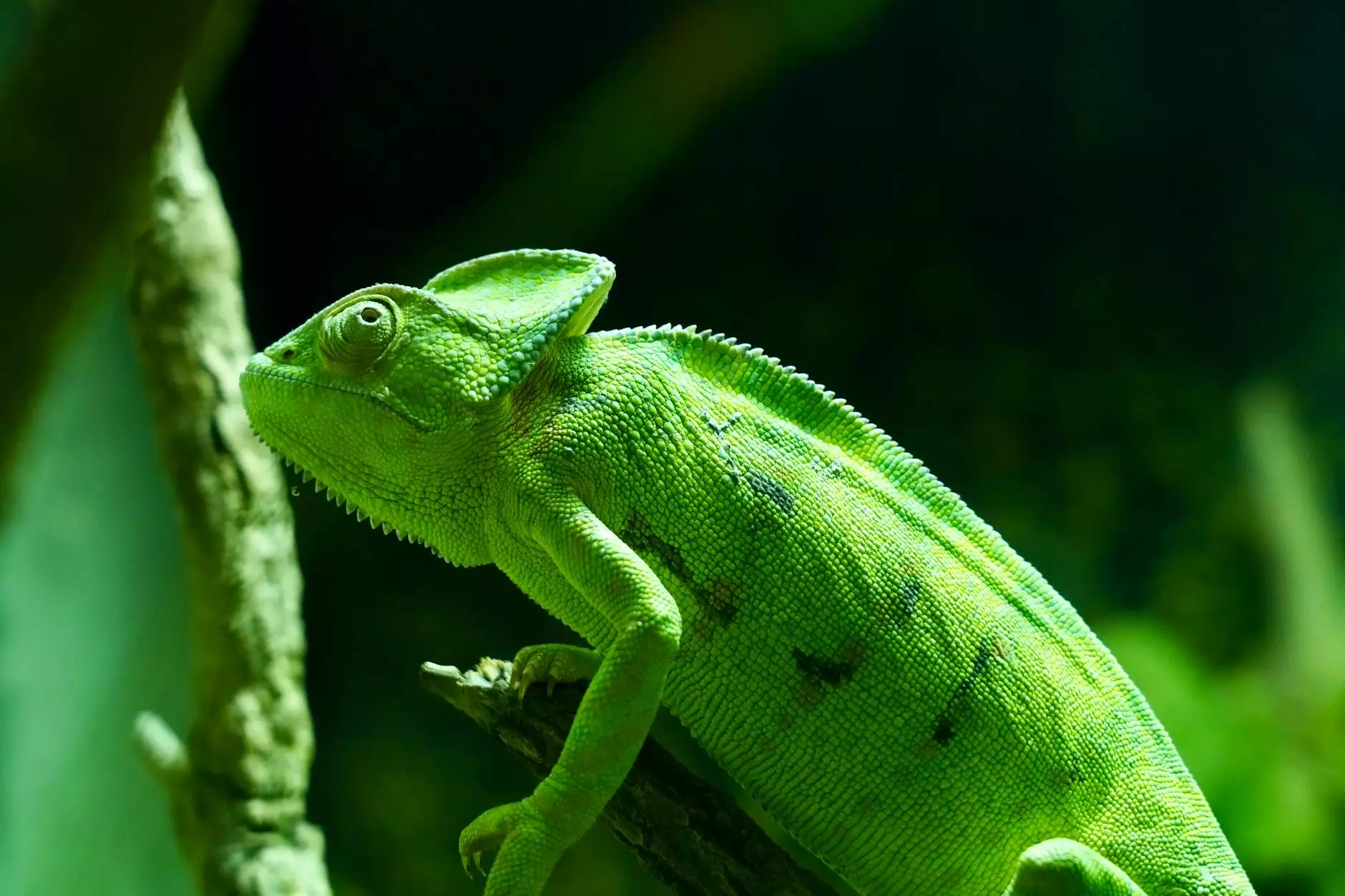The Ultimate Guide to Lizards: Exploring Your Local Lizards Store

If you’ve ever considered lizards as pets, you’re not alone. These fascinating creatures are not just unique but also incredibly rewarding to care for. In today’s article, we will delve into the world of lizards—highlighting the importance of reliable sources like a lizards store and showcasing how places like eu-exoticreptiles.com offer valuable information and quality reptiles. Whether you're a first-time pet owner or an experienced reptile enthusiast, this guide will provide insights to help you make informed decisions.
Why Choose Lizards as Pets?
Lizards are becoming increasingly popular as pets for several reasons:
- Low Maintenance: Compared to traditional pets like dogs and cats, lizards typically require less day-to-day interaction and maintenance.
- Unique Habitats: The setup for a lizard's habitat can be a fun project and highly customizable to reflect your creativity.
- Educational Opportunities: Caring for a lizard provides a hands-on understanding of ecology, biology, and responsible pet ownership.
- Diverse Species: From chameleons to iguanas, there's a wide range of lizard species, each with unique characteristics and care requirements.
Choosing the Right Lizard from a Lizards Store
When you visit a lizards store, it's crucial to know what to look for to ensure you choose the right pet for your lifestyle. Here are some tips on selecting the best lizard for your needs:
1. Research Common Species
Before heading to a lizards store, familiarize yourself with popular lizard species:
- Bearded Dragons: Friendly and easy to handle; great for beginners.
- Leopard Geckos: Low-maintenance and adaptable; ideal for new pet owners.
- Green Iguanas: Beautiful but require more space and care; suited for experienced owners.
- Chameleons: Colorful and unique, but need specific humidity and temperature; best for skilled keepers.
2. Assess the Habitat Needs
Different lizards have different habitat requirements. When choosing, make sure you have the correct enclosure ready. Most lizards need:
- Proper heating (basking area and cooler side)
- Humidity control
- Space to move and explore
- Hideouts and climbing structures
3. Check Health and Behavior
Always inspect the lizards in the store. A healthy lizard should:
- Have clear, bright eyes
- Be active and alert
- Have no signs of parasites or infections (like shedding issues or dull skin)
- Show curiosity and willingness to explore its surroundings
Don't hesitate to ask the store staff about any concerns regarding the lizard's health history and dietary needs.
Setting Up the Perfect Habitat
Creating a comfortable living environment for your lizard is essential for its well-being. Here is a breakdown of essential components:
1. Enclosure
The size of your lizard's enclosure must match its species. A general rule of thumb is:
- Small lizards (like geckos): 20 gallons or more
- Medium lizards (like bearded dragons): 40 gallons or more
- Large lizards (like iguanas): 75 gallons or more
2. Temperature and Lighting
Maintaining the correct temperature gradient is vital:
- Provide a basking area that reaches 90-100°F (32-38°C).
- The cooler side should be 70-80°F (21-27°C).
- Use UVB lighting to ensure proper calcium metabolism.
3. Substrate and Decor
Choose a substrate that mimics your lizard's natural environment. Options include:
- Calcium sand for desert dwellers
- Eco-earth or coconut fiber for tropical species
- Paper towels for easy cleanup (especially for young lizards)
Add decor such as rocks, branches, and plants to create hiding spots and climbing opportunities, promoting natural behaviors.
Feeding Your Lizard: Nutritional Needs
Each lizard species has specific dietary requirements. Ensuring a balanced diet is crucial for health and longevity:
1. Understanding Diet Types
Most lizards fall into one of three diet categories:
- Insectivores: Feed on insects like crickets and mealworms. Ensure a variety of sizes based on your lizard's age.
- Herbivores: Primarily eat plants; options include leafy greens, flowers, and fruits.
- Omnivores: Enjoy both animal and plant-based foods; provide a balanced mix of protein and vegetation.
2. Supplementation
Supplementing your lizard’s diet with calcium and vitamins is essential, especially for species prone to metabolic bone disease. Use dusting powders to enhance the nutritional value of their food.
Understanding Lizard Behavior and Training
Lizards may not be trainable in the same way as dogs, but they can exhibit learned behaviors. Here are some tips to bond and interact with your lizard:
- Handle Regularly: Spend time gently handling your lizard to help it become accustomed to your presence.
- Watch for Signs of Stress: If your lizard becomes agitated or tries to escape, it’s important to respect its boundaries.
- Observe Behavior: Understanding your lizard's natural habits can help you provide a stimulating environment and anticipate its needs.
Common Health Issues in Lizards
Staying aware of potential health issues is crucial for every lizard owner. Here are some common health problems to look for:
- MBD (Metabolic Bone Disease): A common issue in lizards due to poor diet and lack of UVB.
- Respiratory Infections: Often linked to incorrect humidity and temperature levels.
- Shedding Issues: Improper humidity can lead to difficulties in shedding, causing stress and potential injuries.
If you notice any signs of illness, consult a veterinarian who specializes in reptiles for a thorough examination and treatment options.
Conclusion: Join the Lizard Community
Becoming a lizard owner opens many doors to new experiences and friendships. From the moment you purchase from a lizards store to years of care and bonding with your lizard, the journey can be incredibly fulfilling. Whether you’re nurturing your first lizard or expanding your collection, remember the importance of education, passion, and responsibility in the realm of exotic reptiles.
Check out eu-exoticreptiles.com for comprehensive resources, pet breeding information, and to connect with other lizard enthusiasts. Embrace this unique adventure and enjoy every moment of being a proud lizard owner!









